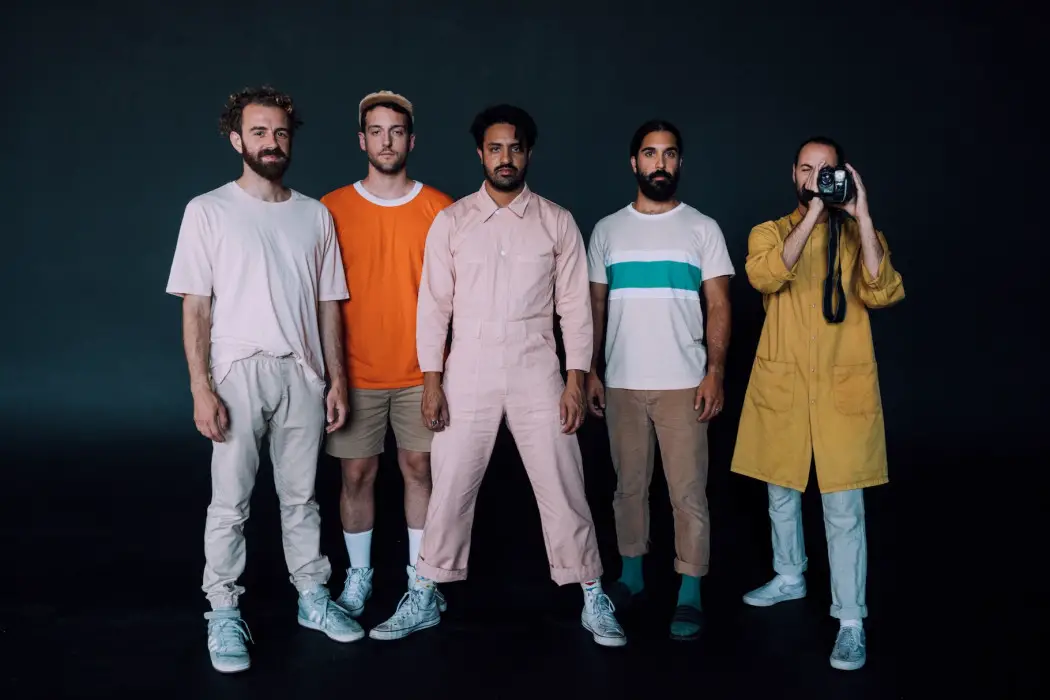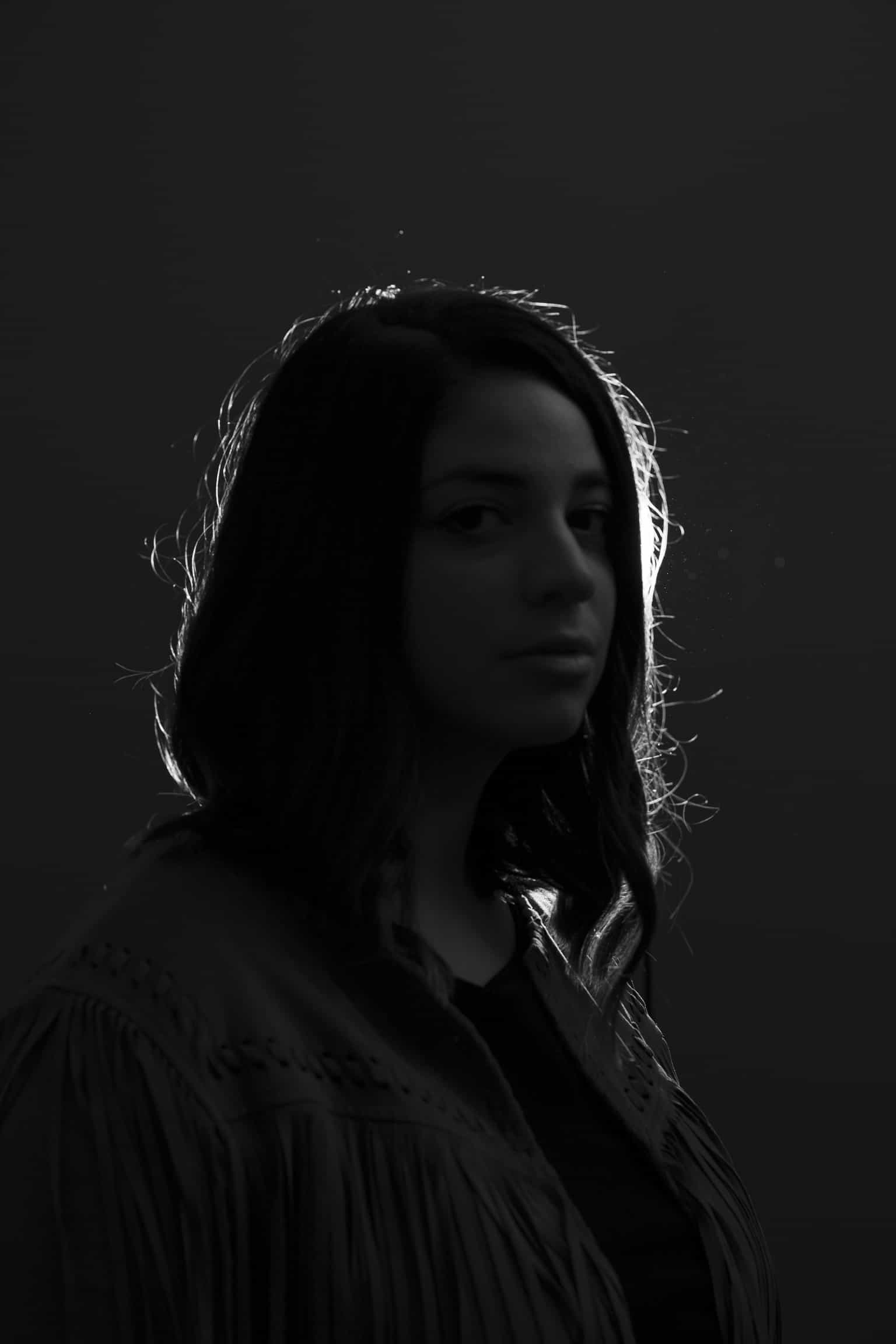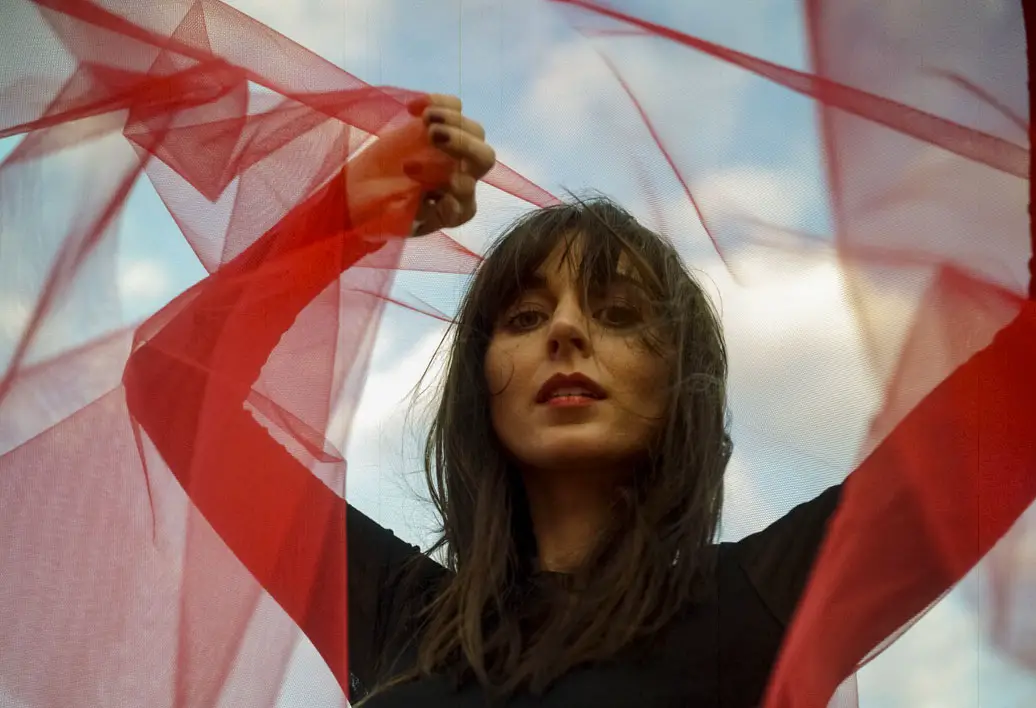Life is complicated, but music can help guide the way. Young the Giant’s Sameer Gadhia breaks down the relationship between illusion and reality permeating the rock band’s ambitious and vulnerable fourth album ‘Mirror Master’.
What does it mean to be a mirror master? For Young the Giant’s frontman Sameer Gadhia, it’s about incorporating self-awareness, control, and a healthy amount of humility into daily life in order to be your best self: “Embracing every part of ourselves, in order to be able to affect, and change, and maybe even understand the world and how we got to this point.“
You will be that chosen master
You will leave with the girl this time
You will be the leading actor
Movie of your own design
And when you hit disaster
The answer will be yours to find
You’re the mirror’s master
Now forever, I’m resigned
– “Mirror Master,” Young the Giant
Life isn’t as simple or as easy as it used to be. We are inundated by media on an overwhelmingly frequent basis, from an ever-increasing stream of sources; at the same time, we project multiple versions of ourselves into the universe through the physical world, social media, and more.
”Each person is within any given day, like 100 different people,” Gadhia explains. “We see different versions and shades of who we are, not just the one-dimensional reflection of who we are on our Instagram page.”
Society is collectively and individually learning how to navigate this bold landscape – and rock bands are no exception.
Young the Giant’s last album, Home of the Strange (August 2016) explored the external search for one’s place in the world – in particular, utilizing the immigrant’s story in the narrative of America to drive songs of discovery, disillusion, hope and fear, and so on. At the time, Atwood hailed Home of the Strange as the band’s “most ambitious work to date.”
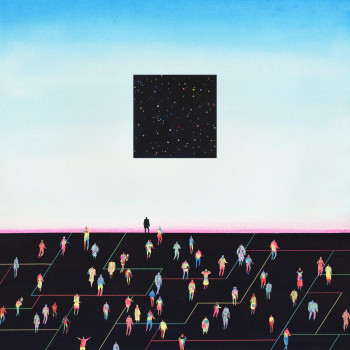
Mirror Master now proudly owns that distinguished title. Released in late 2018, Young the Giant’s fourth album is a brilliant internal reflection of self – an introspective and often highly philosophical search for understanding from the multitudes within the individual. It features Young the Giant – consisting of Sameer Gadhia (vocals), Jacob Tilley (guitar), Eric Cannata (guitar/vocals), Payam Doostzadeh (bass), and Francois Comtois (drums/vocals) – contrasting who we are against who we think we are.
It’s also a creative landmark for the Los Angeles five-piece, who recently celebrated a decade together. Culled from fifty tracks down to twelve diverse, yet seamlessly cohesive songs, Mirror Master finds Young the Giant as confident and sure of themselves as ever, deftly bringing together meaty rock elements, delicate soft acoustics, electronic ambient textures, and more. The band exercise restraint in their new songs, resulting in a refreshing wealth of musicality that allows Mirror Master to flourish as a body of work.
Having now entered their second decade together, Young the Giant have eclipsed many of the rock bands they grew up idolizing. They’ve marked this impressive milestone with an album full of depth.
At its core, Mirror Master explores the dynamic between illusion and reality.
“I think more than anything, it’s kind of trying to find yourself amidst the noise and the craziness of what the modern world is now. When you realize that everyone is dealing with the same shit as you are, that we’re all living in this modern time together, there’s something uniting about that. It’s just being okay with yourself,” Gadhia muses.
“For us sonically as a band… we were for the first time just really seeing ourselves in the mirror and being the authors, being the masters of our reflection in the world. And I think everyone has that power. If they don’t have power over anything else, they at least have control of the way that they can be seen in the world and do good for people.”
You will be the chosen master. You will be the creative beyond reality. Now you have swapped places. Now just realize that that is the mirror and this is you, and you have control.
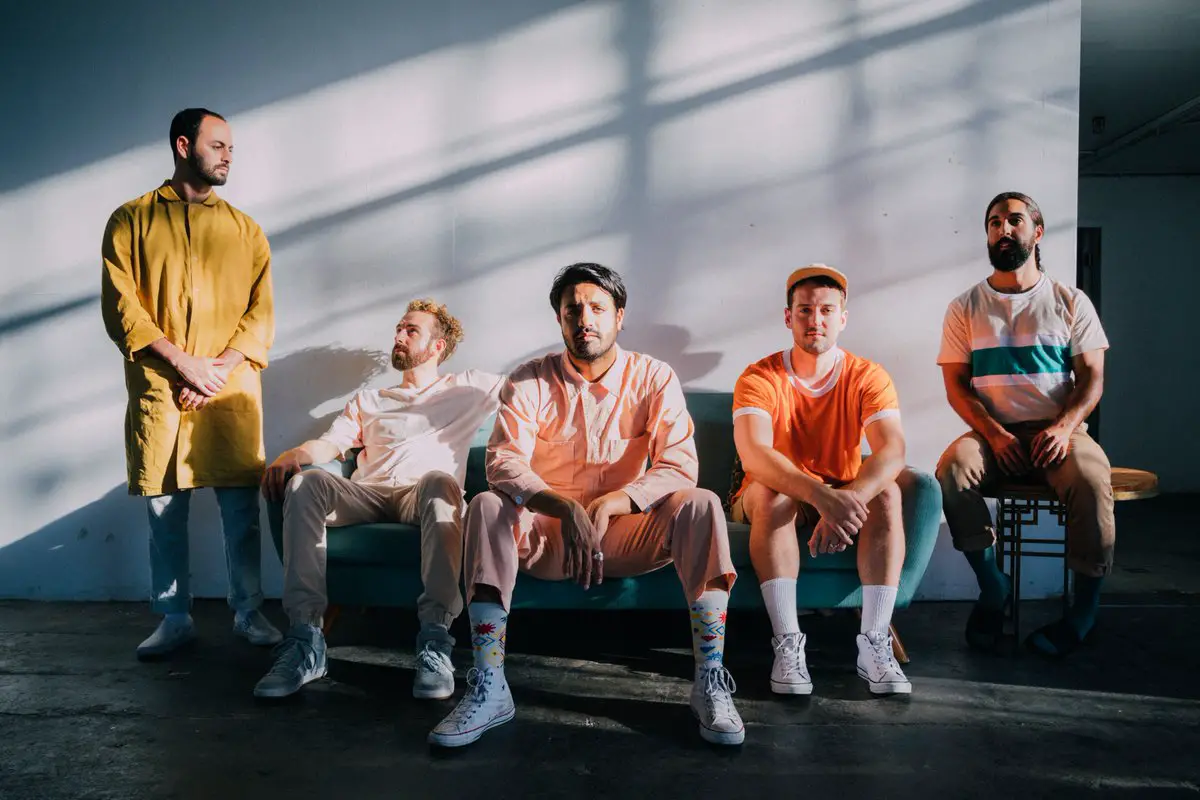
Mirror Master and its underlying philosophy require time, care, and considerable attention to comprehend.
The music may be catchy and easily accessible, but the ideas are certainly not for the faint of heart: Young the Giant force us to step outside of the everyday – to consider our mental health and confront ourselves.
Everything I say only seems to complicate it
Every little fight is just another night wasted
Are we gonna lose? Is it gonna last?
Worry about the future, worry about the past
Think we’re gonna break before I get a chance to say this
Don’t wanna live without you
Staring in your eyes, everything simplifies
Leave it all behind, everything simplifies
All we need is nothing more when everything simplifies
You and I need nothing more, everything simplifies
– “Simplify,” Young the Giant
“I think for the first time, America is looking at itself in the mirror and noticing these things that they never saw before: Stuff that was hiding in the blind spot, that now has come into full light, post-Trump era,” Gadhia says. “For me, it’s something that’s valuable because it shows the dissonance between what we think is reality in that reflection and what actually is reality… It’s just kind of an affirmation, understanding that illusion and being okay with having that authorship; being okay with every version of yourself.”
Young the Giant are so much more than a rock band. Dive deep into their powerful, vulnerable fourth album in Atwood Magazine’s exclusive interview with Sameer Gadhia, and discover what it means to be a Mirror Master!
Even though maybe all these things are just illusions, we’re searching, and I think that, at the end of the day, is what humans always want to do.
:: stream/purchase Mirror Master here ::
A CONVERSATION WITH YOUNG THE GIANT
Atwood Magazine: Hey Sameer, thank you for meeting today! Last time we spoke was over two years ago. Home of the Strange had just come out and we talked about your experience as an immigrant, the idea of one's home, being a rock band in the streaming age, and your music's themes of self-identity and disillusion. It was a lot to cover!
Sameer Gadhia: It was, it was.
Obviously, you don't stop thinking about something just because you finished making an album. How would you say these themes have spilled over into Mirror Master?
Gadhia: I think Home of the Strange and Mirror Master in some ways are two sides of the same coin, whereas Home of the Strange is more like an external search for your place in the world, and your place in the narrative of America. This record is more an internal reflection of self, and where you fit in with your own versions and your own ideas of who you are – especially in what America is now.
In a lot of ways, the record tackles a lot of ideas of mental health. People look at themselves in the mirror: We have the physical mirror; obviously, every day in the morning we wake up and see who we are. We see different versions and shades of who we are, not just the one-dimensional reflection of who we are on our Instagram page and on social media. I think this record is kind of embracing all of those concepts, all those shades of who you are, because each person is within any given day, like 100 different people. This record is embracing every part of ourselves, in order to be able to affect and change, and maybe even understand the world and how we got to this point.
I think for the first time, America is looking at itself in the mirror and noticing these things that they never saw before: Stuff that was hiding in the blind spot, that now has come into full light, post-Trump era. For me, it’s something that’s valuable because it shows the dissonance between what we think is reality in that reflection and what actually is reality. And it’s because there is so much – that everyone is so many different people at the same time – that the concept of where we are online (being that mirror for everyone – even a president) is very one-dimensional. And so, it’s just kind of an affirmation, understanding that illusion and being okay with having that authorship; being okay with every version of yourself.
An affirmation of having that illusion and being okay with yourself. I can hear that you have so much to say about this new music and there is a theme. You haven't always liked themes, but you've come to very much enjoy embracing the greater meanings in your music.
Gadhia: Yeah. It’s interesting, in that we never thought we would do concept albums, yet in order to do a record now, I really do feel that it has to be some greater narrative or notion to everything. And this record, we’ve not only been writing it, but I think we’ve all been just living it in our personal lives… These things that tend to echo back to us, subconsciously almost, become these greater sticking posts when we really start looking back at what we’re doing, and it’s pretty awesomely frightening to see that – the effect of that art on us.
I'd say it's almost incredible - because you have described this album as a reference to societal illusions of freedom, and actually breaking out of expectations or the routine to eventually fully own our identity.
Gadhia: Yeah, and that is always an infinite limit. There’s only so much that we can do. At the end of the day, there are many things that we won’t be able to see of ourselves. I think that’s why in some of these songs, there’s a romantic element to it because I feel like for humanity, in order to see themselves… individuals to see themselves, sometimes you have to see the parts that you’re willing to accept of yourself in the reflection of another person or in the eyes of another person, and that is also a big concept for us.
Personally, on this record, all of us have had big life changes, three of us that have gotten married. And we’ve all started settling down into this notion of adulthood and what that is meant to be.
It's so exciting. Going a little bit more specific, obviously, I know the song “Mirror Master” takes on some of this concept, but where does this theme manifest for you specifically on the record?
Gadhia: I think “Superposition” was one of those jump-off points. Each record that we’ve had, there has been one song that’s kind of opened the floodgates to this notion of thinking. It becomes a phenomenon where I just see themes in our life and just themes in general, and Superposition was that main concept. I think just the pure chaos of life and taking that notion of not fate, not superstition, but “Superposition,” this idea that this is our reality that we’re living in and we could have gotten here many different ways, but we’re here now. That brought up a lot of ideas for me of illusion, just that general idea of that… the notion that we don’t really know everything, and even when we have really strong opinions based on scientific fact, the scientific facts are based on only our human perception of it, so it’s limited.
It brought back to me a lot of these notions of what I had learned, also… A few years ago when I was younger, I wrote an article for Salon Magazine. It’s called “Maya… The Illusion of Truth in America.” It was just the idea of being able to try and step outside of your own illusion and realize that your truths are just that, and that we create these things all the time. That doesn’t necessarily mean they’re bad. It’s our coping mechanism for getting by in the world. You have to create an order in your life in order to be able to live it. But just toying with that concept and just realizing that sometimes we don’t know everything, and that can be the most calming thing… That we don’t know everything. And so, that became the jumping point for this concept of Mirror Master and the relationship between illusion and reality.
So we are each in our narrative and we are beholden to our own narrative, but our narratives do not belong to us and they are not necessarily the be all, end all.
Gadhia: No, they’re not the be all, end all – but they do belong to us. I mean, they power our perceptions and at the end of day, we see the world through our reflection; we see the world through our image, and it’s the only thing that we know the world to be. But that doesn’t mean that it’s the same thing as what the world actually is. There is a huge difference there between your perception and what actually is. I think, as soon as people realize that, it can be a really awesome experience – to be able to realize that you don’t have to have an opinion about everything all the time, that you can say, “I don’t know,” and that’s okay.
Man, some of these things are just so in-depth. I'm excited by the challenge, but it's so daunting to explain this.
Gadhia: No, I know.
You're in your head, but I mean, you've got it all down in paper and in music.
Gadhia: Yeah. I think for a lot of this, this internal idea, I think, is what America is now. Everyone has this curated version of themselves online. I think more than anything, it’s kind of trying to find yourself amidst the noise and the craziness of what the modern world is now. Being able to always compare yourself and see what someone else is doing on a Friday night that you might not be doing. It’s a very new development. This breeds a lot of depression, breeds a lot of anxiety. This record is just about mental health in a lot of ways. You can get really complicated about things, there are a million reflections of everything.
When you realize that everyone is dealing with the same shit as you are, that we’re all living in this modern time together, there’s something uniting about that, that everyone has these struggles to deal with, whether they’re conscious of it or not. It’s just being okay with yourself, regardless of what’s happening on the internet. I think that’s one of the main mantras. For us sonically as a band, that was one thing that was important for us, that we were for the first time just really seeing ourselves in the mirror and being the authors, being the masters of our reflection in the world. And I think everyone has that power. If they don’t have power over anything else, they at least have control of the way that they can be seen in the world and do good for people.
I think what we wanted to show was some vulnerability and honesty, and show different shades of who this band is, just sonically and lyrically, trying to be ambitious and do things that we’ve never done before, all in the hopes of convincing people that they can do the same.
I think more than anything, it’s kind of trying to find yourself amidst the noise and the craziness of what the modern world is now
I want to unpack that for a minute and hone in on this idea of always being on. The happiest people I know and hear about are those who have found their balance - who are not always clinging to the 24-hour news cycle; who have taken themselves out of that equation and said, Here is what I'm going to allow into my life and here is what I'm going to take out of my life.
Gadhia: Exactly, and I think a lot of people equate that, and especially in this modern day and age, as lethargy or not being involved. And I don’t think that’s the case. I think at the crux of this record, it’s like, in order to make any change in the world, you have to be okay with yourself. You have to be able to accept all the versions of who you are, and then you can start realizing that other people also have the same issues that you do. It’s okay. You don’t have to, yeah, follow the 24-hour news cycle in order to do that. You don’t have to stay plugged into your phone, because you can still affect change living in your own terms.
I think in a lot of ways, the mirror is social media or it is modern technology. It’s an important way; it’s very beneficial; it’s great for us to be able to see who we are: To see someone else who’s across the world in the mirror and right next to us. But at the same time, it’s not reality. We have to assert control again of being the people in front of the mirror, and realize that we don’t have to be everything that we see in the mirror, but just be ourselves.
We have to assert control again of being the people in front of the mirror, and realize that we don’t have to be everything that we see in the mirror.
Sameer, have you ever considered becoming a motivational speaker?
Gadhia: Oh, man. I’m sure those guys, they’re pretty solid, but I don’t know. I don’t think I’m following all the rules that I have set. And I think a lot of those people purport to… I don’t know that many people can. These are things that I tell myself all the time, too. I have major issues with all these things, constantly. I battle my own depression, my own sadness, my own anxiety on a daily, hourly basis. If anything, I just want to show people that, hey, it’s not that I have figured it out. It’s just that I’m okay to be vulnerable and I’m willing to show you guys that I’m struggling too, and that if we’d all just acknowledge that – and not just when someone famous dies; that this is the modern condition and it’s okay, that we’re all together. That makes me feel better, at least.

Everyone feels lonely sometimes in some way, and sometimes people feel lonely a lot.
Gadhia: Yeah, exactly, and it’s okay to be that. Just because everything that we see online is happy, some people are really trying to be vulnerable, and those are the people who are really having conversations with people. And I think that’s what’s important, to show that it’s okay, yeah, we are real and you just need to be always cognizant of that. It’s very easy to be surrounded by this stuff that’s always coming at you and define yourself through that and not through yourself.
Some people are really trying to be vulnerable, and those are the people who are really having conversations with people.
Tying that back in, you've mentioned how Mirror Master is sort of the flip side of the coin that is Home of the Strange. You talked about “Superposition” kind of being the jumping off point. Where did these two records blend together? How did the Mirror Master sessions begin? What was the inspiration that hit you, that brought “Superposition” to life?
Gadhia: Well, we pretty much started writing Mirror Master as soon as Home of the Strange was done. We wrote over 50 songs for this record. “Superposition” was one of those first songs, and like any song that is worth writing, it started out as just a conversation of where we are in the world, and that’s romantic: This notion that, at least when it comes to someone else, that no matter which way you would have met or which way it would have happened, that you guys would have met somehow. At the core of it, there’s this idea, this romanticism, and it can be with yourself or it can be with someone else. And at the time, it was with my partner and we were talking about just relationships in general. From there, it just kind of started snowballing…
What is the modern relationship these days? We all live on multiple timelines with different feeds like Instagram and Facebook and Snapchat or whatever, and they’re all on different times. They’re all different realities, essentially. In order to have a relationship, nowadays it’s very confusing. In order to have a meaningful relationship with someone else or anyone, you have to have a good one with yourself. That is what Mental Health 101 says. It’s something that, in this modern day and age, is very, very difficult to tackle.
Then, this whole idea of illusion, this continuous illusion around us really started taking shape. That’s where the idea of “Mirror Master” came in. “Mirror Master” was one of the last songs that we wrote for the record, and it’s also the last song on the record. I think it’s an affirmation. It’s like a mantra: It’s the same thing over and over again. You will be the chosen master. You will be the creative beyond reality. Now you have swapped places. Now just realize that that is the mirror and this is you, and you have control. That’s where it all came from, but it did take 50 songs and like a year and a half of writing to get to that point.
I've got to tell you. 50, some of these bands I talk to, that's nothing.
Gadhia: [laughing] Yeah, I know. I mean, 50 songs for us is a lot. For the first record we wrote 15 songs, and for the second record we wrote like maybe 18 songs. Third record, we wrote maybe like 20 songs. So to write 50 songs for us, personally in the way that we write, is very difficult because we are five guys and we write everything together, and it’s all kind of inspiration based on this chaos of everyone just trying to figure something out together. And so, for us, it’s a very emotionally draining process, and to write 50 songs, for us, was difficult. I’m probably sure that there are many bands who write hundreds of songs before they get into the studio. But yeah, I mean, at least with our experiences, that’s something that was very taxing and important.
You have to be able to accept all the versions of who you are, and then you can start realizing that other people also have the same issues that you do.

I have a lot of respect for the fact that you don't do it the other way, and I really like that what we're hearing is really the authentic songs that you wanted to take all the way from start to completion. I like that.
Gadhia: Yeah. Yeah.
I loved earlier when you were saying how “Mirror Master” is sort of the affirmation. It's empowering, and it's a message that sends us back into the world having listened to your album, 12 songs, and it brings us back to reality. For me especially, I feel like when listening to the album as a whole, I feel like I'm really diving into your band's world. I feel like I'm really almost stepping into someone else's shoes at times. And then with “Mirror Master,” it's kind of bringing me back and saying, Well, all of this is also your life. All of this is also all of our lives.
Gadhia: Thanks for that! It’s awesome that you say that because I will never know what that feeling is like, to listen to a Young the Giant record without being in it. So, it’s great to do that. That’s so important about this, because everyone who listens to it will give it more meaning as it continues to grow and to be shared. And so, that’s exciting. I like hearing those stories from people. We don’t necessarily plan for that; it just kind of hopefully happens.
Listening to Mirror Master, I feel like you, as a collective again, are more sure of your individual and band identities now perhaps than ever before - at least since I first heard Young the Giant, the first record. Mirror Master feels like perhaps the most cohesive effort of yours since that first record.
Gadhia: Thank you. Thank you very much. That’s great because we’re never sure about those things. When you write like 50 songs, you hope you can puzzle the pieces together in the way that makes the most sense. We’re happy that you feel that way.
Sometimes you hear a record and you're like, Oh, they're experimenting. Sometimes you hear the record and you're like, Oh, they experimented and they found something new. I feel like Mirror Master really brings that home.
Gadhia: Well, thank you, man. That’s very kind of you to say.
You are very welcome! We previously just spoke about your strained relationship with love songs, which have been few in the Young the Giant catalog. Seems to me like between Home of the Strange and Mirror Master, you're turning into something of an expert.
Gadhia: Yeah. I think there was some trick in my head that connected what I’ve been trying to say with music and what that idea is for me. The one thing that I always feared most about rock love songs is that they really hide behind these cliches of what love should be in music, in popular music. I really didn’t want it to be that because love is unique to every person, and so it’s so hard to just make it a Hallmark card and just say, “Hey, this is a love song.” For me, it was just this record, more than anything, was just about trying to be honest with the lyrics and with our intent, and not trying to hide behind narratives that our rock and roll forefathers have set for us and trying to do something different. That’s one thing I really appreciate in modern hiphop.
Even like trap music in its own way, even though it’s absolutely ridiculous, at least they’re just embracing this subconscious notion of the idea of themselves and they’re not worrying about curating themselves and making themselves sound cool or look this way… or maybe not look, but sound a certain way. There’s almost no filter between what’s happening in their head and what’s being put out into the world. That concept, for me, was inspiring, and in a world where bands have to deal with every two-year album cycle. That is really inspiring because music should be a continuous thing. It shouldn’t just be something that is released and has like a week of sales or whatever, and is only done every two years. It should be something that’s always all the time.
I want to read the lyrics to “You and I.” It's one of my favorite songs on this record: “You and I break out, just a matter of time. There's a reason we don't live forever.” Those words, when I say them, don't necessarily sound romantic. But when you sing them, oh my gosh.
Gadhia: Well, thank you, man. Yeah. I think that, in a lot of ways, is the duality of relationships because in order to have any relationship with anyone, like we have said few times, is that you need to have one with yourself. And so it can be considered like a love song to yourself almost or an affirmation, but also, if you’ve evolved to the next step, is with a partner, who you’re willing to share your world with, who you’re willing to collide worlds with. I think that just that growth of time, over the course of those verses, really hits home for me.
Here at the party I came to alone
Ramblers are rambling, you stared at your phone
I’ll stick around if you stick around too
I wanna know why you hide in your head
Where do you go when you glide down the stairs?
I’ll stick around if you stick around too
You and I
Break out just a matter of time
There’s a reason we don’t live forever
Reason we don’t live forever
Of course, it's not the first time you say “You and I.” You sing that in the chorus of “Simplify.” When I first heard “Simplified” when this record began its cycle, I said, “Wow, Young the Giant have finally made a beautiful love song,” no offense. I heard it like a love song at first! Now, given the conversation we've been having about simplifying life, about being who you want to be, about not conforming to other people's standards, and about other things you've been told, now I'm thinking about it a little differently.
Gadhia: Yeah. I think it’s a combination of both. With any song, there should be some sort of ambiguity in terms of who you’re referring to. Throughout the whole record, the main character is in the front of a mirror. In the album art, you see that guy on the horizon. He’s the one who’s searching for that reflection. But there are so many things around him and people whom he loves. At the core of the song, it is a love song. It is this idea that things in life can get very complicated. But the second that you look into someone’s eyes, like someone who you really love, like your family, your friends, or a partner, that things tend to wash away at the doorstep.
They resolve.
Gadhia: Yeah. Yeah.
I think what we wanted to show was some vulnerability and honesty… trying to be ambitious and do things that we’ve never done before, all in the hopes of convincing people that they can do the same!
I think I have a better understanding about the reflection. I'm so glad you brought up the album art, because I am fascinated by it. What is the dark black square in the sky, in your mind? And who designed this album cover?
Gadhia: A guy named Rob Sato. He did our last album as well, but now we’ve established a relationship with him and it feels more personal. We shared the record with him, and it actually came from a piece of art that he already had, that we saw and were like, “We absolutely love this. Do you think you could Young the Giant-ify this?” And he did, and it’s the product of what happened.
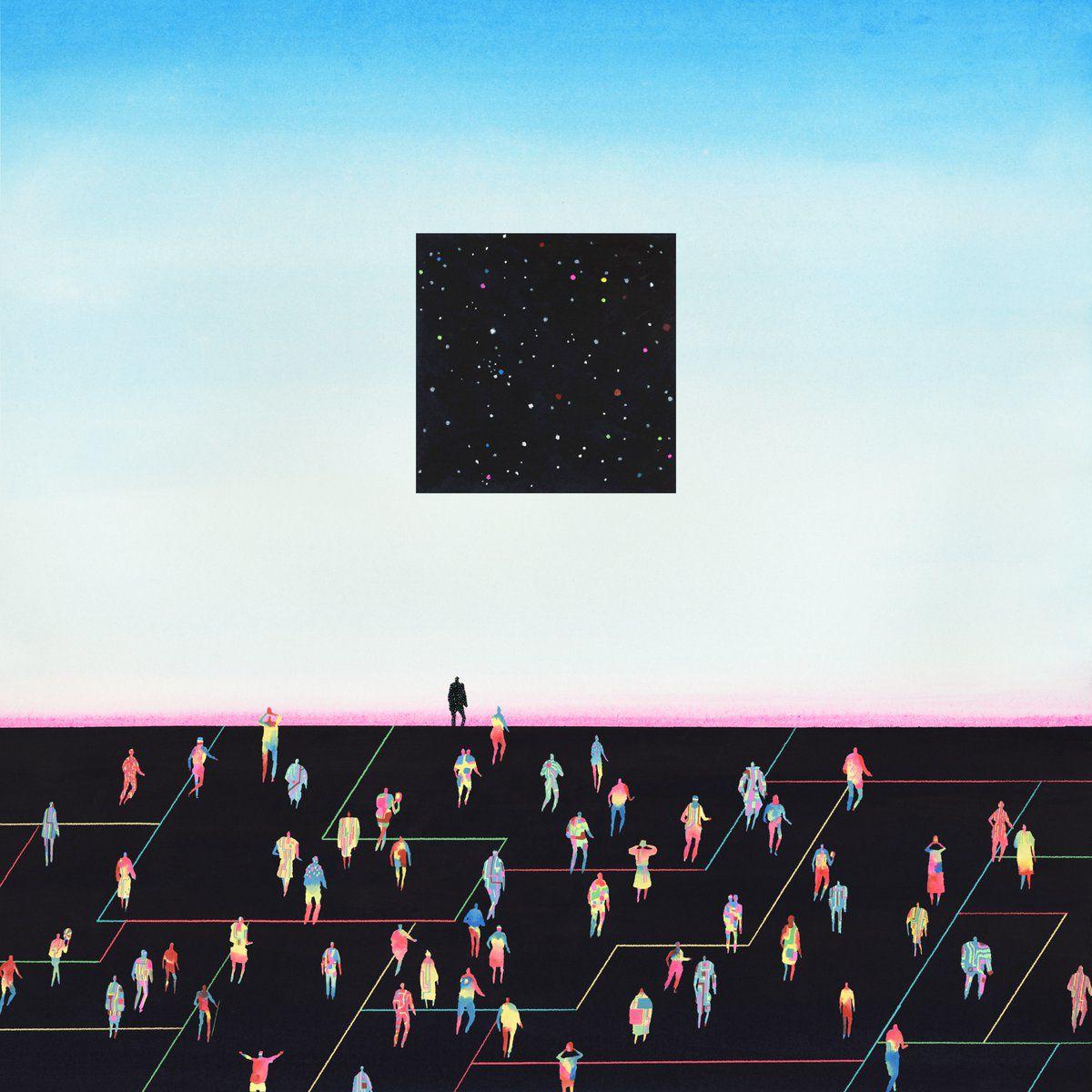
That's so cool; it's so different. Obviously, there's supposed to be a sun there, but it's blocked out, which feels like what many of the songs are searching for, right?
Gadhia: Yeah. There is always this concept of searching, and I think for Young and the Giant, that has been a big thing for us, just the notion that what we’ve been given and what we know is just the tip of the iceberg… Trying to go somewhere else and trying to find who we are, where we fit in the world, where we fit in ourselves, how we work, and how the country works. Even though maybe all these things are just illusions, we’re searching, and I think that, at the end of the day, is what humans always want to do.
Mirror Master is a very diverse record sonically. I love the ambience of “Call Me Back;” I love the delicate softness of “Darkest Shade of Blue.” I love the garage rock churn of “Oblivion.” How are these different styles becoming an equal part of Young the Giant's musical identity?
Gadhia: I think they’ve slowly been nursed throughout our career. Even at the first record, there are inklings of these different versions of what Young the Giant is. We obviously hit success with “Cough Syrup” and “My Body,” and those were the songs that, even to this day, people think of Young the Giant as. That’s totally natural; that’s how the world works – everyone wants to categorize something as something else. But these pieces of us, instead of trying to shed them, we’ve been just trying to build them up as well and just trying to carry them out into existing on their own. I think that’s a continuous process, and I think with this record, we’ve managed to do that a little bit. I’m definitely proud of that.
“Darkest Shade of Blue” is particularly exciting for me, because I don't think I've heard you do anything like it before, and I don't know that it's going to get talked about as much as it should be. How did that song happen? Sometimes when I listen to it, I kind of think about Nashville and some of the rock/pop acts coming out of there. But where did it come from?
Gadhia: We were in the studio and actually, our guitarist, Jake, was trying to do a film score for one of his friends… He was just at the beginning stages of it. It’s kind of the funny thing with Young the Giant, is that all of us have our own things that we do. But then, when it becomes something that everyone likes, it becomes Young the Giant, and that is really exciting! But it started out as just an ethereal piece, and then we brought the lyrics and the melody to it, and within like 30 minutes, we ended up producing it ourselves in a home studio. I really love that one. I’m really happy that that one’s on the record.
Me too. It's very refreshing. It's such a less is more element, and not enough rock bands do that.
Gadhia: Oh, thank you, man. Yeah. I mean, it’s hard. We’re five guys, and it’s easy to play over things. As you grow as musicians and as instrumentalists, you want to be able to play all the time, but I think that we’ve slowly been trying our hardest to really use some restraint. I think that, if anything, is the hardest thing: To know that you can do something there, but that the space is actually needed.
Speaking of various restraint and instruments, your voice seems to be growing stronger each year. I don't know what you're doing, but keep it up! Do you think you could have crooned as high and clearly as you do on “Brother's Keeper,” six years ago?
Gadhia: [laughs] I don’t think so, I’m not sure. I think it’s just been like a continuous discovery of my voice just as I practice. We started out at such a young age. Going into the first record, I never had formal training vocally. I feel like I’ve been going through the hard knocks of that over the course of almost the last decade, and I’ve become more comfortable with these parts. If anything, there’s almost like mental barriers and we’re talking about being afraid to show certain parts of yourself. I always thought, for the longest time, that what a lead singer of a rock band should do is sing loudly, because they can do that. But I realized, well, there is a whole other side of my voice that I want to share, and I want to bare it and do it nakedly, and that voice has come into this record.
That's so exciting, and that's so special. We've talked about Superposition, Simplify, Darkest Shade, and the title track. There are obviously so many songs and so many things to talk about. What are some of the album's highlights for you, personally?
Gadhia: I really do like “Darkest Shade of Blue” a lot. For me, that’s really exciting. I really enjoy “Tightrope.” That song was a labor of love. On ever record, there is always one song that you just do over and over again, and it’s not quite right, and you’re not sure if you should do it another time. But then, when you finally get it, it’s the right one. I think “Tightrope” for me is one of those. I am really excited to play “Oblivion” as well. I think that song showcases a part of us and who we are, that no song on our whole discography quite does in that way. So I’m really excited for that one as well.
“Tightrope” was the last song I was listening to before we hopped on the phone. I went to war with peace of mind. What was it for? Such vivid lyrics! I'm so taken by that one in particular as well. How was it a labor of love?
Gadhia: Thank you — well, we did the song with three different producers. The first time we had it, it existed in a different key. The crux of the song was there, but the dressing — what we wanted; how we wanted to encapsulate the music — wasn’t quite right, so we took it to another producer who had done some other stuff on this record, actually, and who is great. But then we also felt that that one wasn’t quite right, and so we took it to a third producer. At that point, all of us were a little unsure and wear of whether or not we should do it. There was a moment we weren’t going to, and then it just came out of the woodwork naturally in a session and we, for the most part, did a lot of it live and it just felt right finally! And so, from being a song that wasn’t going to make the record at all to being one of my favorites (and all of one of our favorites) is a testament to how things can change.
And it shows just how hard you work, when you feel like you've got something good, to make it right.
Gadhia: Exactly.
“Glory” stood out to me as something of a different type of Young the Giant song. “Glory be to God,” you sing over and over again. Can you talk about that track and its significance on this record?
Gadhia: Yeah, I’m really proud of the verses on that record and actually the whole song. For me it’s a really vulnerable song, kind of a confessional in a lot of ways. Historically, as a lyricist, it’s much easier for me to hide behind other characters or ideas of what I think I should be. This kind of seemed more confessional, and I loved that idea of toying with that concept of being able to sing, “Glory be to God,” but having it feel kind of ominous and strange, and this mixture — that paradox between what is good and bad are sometimes the same thing.
I’m really proud of that song, because it was the first song that came out of a new writing process for us. We decided to do like a postal service approach to some songs, even though we live like a quarter mile away from each other. We were like, “Let’s just try this.” We all have little home studio setups… So on a Monday, we’d all start in the studio and start writing a song. By the end of the day, there was a time limit, and everyone would have to send a song to the next person in a chain that we’d already created, so like a rotation. And “Glory” came from that process. It was really awesome… I had that song second on the rotation, so I got it and I changed some of the instrumentation, but I added my melody and the lyrics and all that stuff. And then, it was just really a song at the end of the week and what everyone had done with it… It became the song that is essentially that. I mean, the song that you listen to today is pretty much just that version. So that’s exciting.
That's so different; when you say that we make songs together, I typically imagine five people in the studio room throwing out ideas as they come to them.
Gadhia: That is also a way that we’ve written a lot of these songs, but we’ve been trying to do different things and this seemed like a really fun idea. If anything, it would be a learning process. But we actually got two really good songs out of it, so yeah… That and “Mirror Master”!
I feel like between Home of the Strange and Mirror Master, Young the Giant are tapping into something very deep in the societal conscience right now. It's so exciting, for someone who's been listening to the band since before “Cough Syrup,” to see what feels like not only transformations, but also an acceptance in the public eye and on radio. What's that experience like on your end?
Gadhia: Yeah, I know. I think it’s exciting. I think it’s absolutely surreal; more than anything, we’re just grateful to be able to have the audience, to be able to have come into this when we did, and to have celebrated almost 10 years with our fans. It’s enabled us to do and think about these things. For us, as a band, our main objective is to try and write good stuff and not at the expense of trying to be more popular or trying to have this or that. That is regardless of trying, it has been the main thing for us.
I think we’ve always just had a little chip on our shoulder that we want to be able to share more of ourselves, and always share more of who we are. We started out at such a young age, and it’s hard for people to grasp what a band is supposed to be before they’ve even reached drinking age. And so, it has been kind of like a continuous goal and the thing that’s been pushing us forward to try and continuously learn and grow.
I hear you 100%. How do you feel about having your fourth album out in the world?
Gadhia: I am extremely excited. I hope that I never have to wait to release anything again [laughs]. It’s just a breath of fresh air. It’s very liberating to finally share what’s been on my mind for two years with people, and that’s always exciting. That goes away in a flash, but I think this time I will most definitely cherish it.
It's so exciting to hear that; it's very surreal. With it bouncing off of Home of the Strange, it does feel like the continuation of a conversation.
Gadhia: Most definitely. Yeah, and I hope that people keep following along.
In addition to the conversations we have and other multimedia, do you ever engage in these kind of conversations with fans, or find ways outside of the music itself to convey these messages? This is such a deep concept and such an important thing to talk about and to engage on.
Gadhia: You know, that has been something I’ve been thinking about recently and how to do that. I think that on this last record, it was very apparent because you could just see the change in the people who were coming to the shows, and what people were just writing online. We try to respond to people as much as possible, and this concept is something that needs to be talked about in person, in hopes of trying to be able to establish more lines of communication with our fans and be able to reach lots of people.
— —
:: stream/purchase Mirror Master here ::
— — — —

Connect to Young the Giant on
Facebook, Twitter, Instagram
Discover new music on Atwood Magazine
? © Wesley Yen

